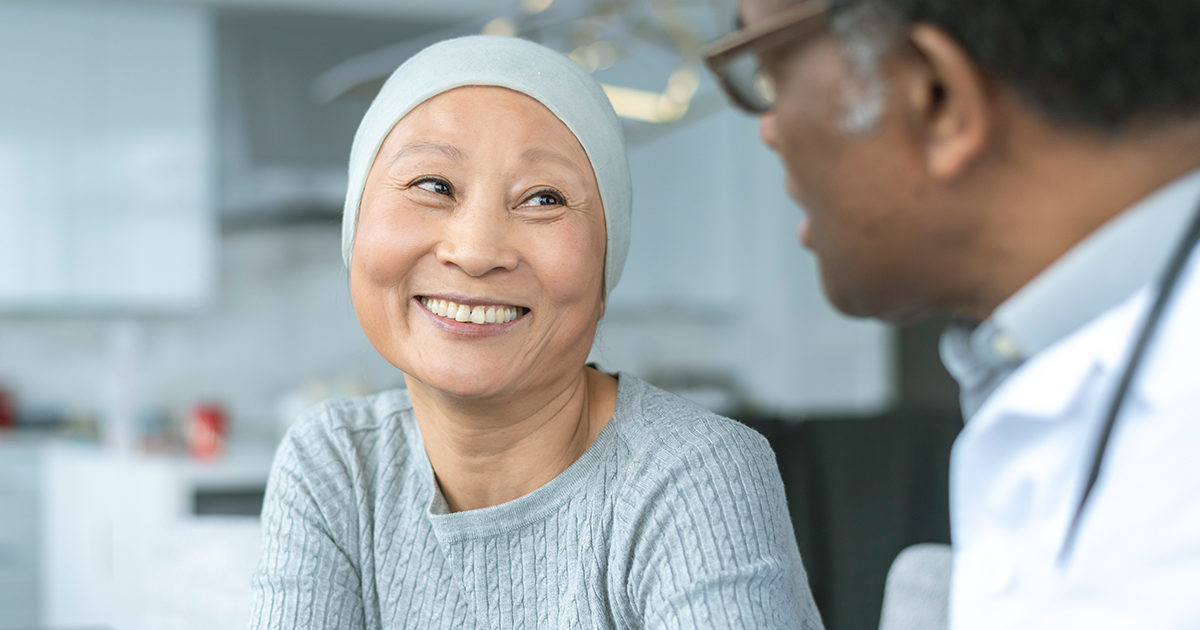About Thyroid Nodules
Your endocrine system is a set of organs and glands that produce hormones, which your tissues use to send signals to each other. Located at the front of your neck, the thyroid gland uses iodine to produce thyroid hormones, which regulates how your body uses energy. Thyroid nodules are abnormal growths on the thyroid gland that are usually benign (noncancerous) and typically do not interfere with thyroid function. Many individuals with smaller or non-functional nodules do not require treatment but may need surveillance to ensure they do not grow or become cancerous. Larger and/or functional nodules may require biopsy and/or surgery.
Types of Thyroid Nodules:
Thyroid nodules are classified based on their makeup and characteristics.
Types of thyroid nodules include:
- Solid thyroid nodules: The most common form of thyroid nodules, which contain very little liquid
- Thyroid cysts: Cysts containing liquid that can be drained or surgically removed if they cause discomfort
- Overactive thyroid nodules: Nodules that produce extra thyroid hormone, resulting in symptoms similar to other forms of hyperthyroidism
Symptoms of Thyroid Nodules
In most cases, thyroid nodules may not cause any symptoms and are often identified on imaging performed for another purpose.
Symptoms of thyroid nodules may include:
- Feeling of fullness or discomfort in the neck
- Neck tightness or trouble swallowing
- Shortness of breath when exercising or lying flat
- Voice changes/hoarseness
Risk Factors for Thyroid Nodules
Certain people are at a greater risk for developing thyroid nodules.
Risk factors for thyroid nodules may include:
- Age: Thyroid nodules tend to present later in life.
- Family history: People with a family history of thyroid nodules are more likely to develop the condition.
- Personal history: Research suggests smoking, obesity, radiation exposure, and living in an area with iodine deficiency may put you at higher risk for developing thyroid nodules.
- Sex: Female patients are more likely than male patients to develop thyroid nodules.
Treating Thyroid Nodules at UT Health Austin
Thyroid nodule treatment begins with a consultation in which an endocrine surgeon will evaluate the nodule with ultrasound. Additional testing may include blood work, nuclear medicine studies, or a combination of both to determine if the nodule produces excess hormone. Larger nodules require biopsy and may need to be removed surgically, while small, benign (noncancerous) nodules may not require any intervention. Your care team will work with you to determine the best course of treatment.
Care Team Approach
\At UT Health Austin, we take a multidisciplinary approach to your care. This means you will benefit from the expertise of multiple specialists across a variety of disciplines caring for you in one place to avoid having to schedule multiple appointments with providers at locations all over the city. The Surgical Oncology Clinic team includes a fellowship-trained endocrine surgeon who specializes in diagnosing and treating cancerous and noncancerous conditions that affect the thyroid, parathyroid, and adrenal glands. Whether your endocrine condition is cancerous or not, the Surgical Oncology team works closely with your referring provider to provide integrated, whole-person care.
Through our Multidisciplinary Case Conferences, we collaborate with our colleagues at the Dell Medical School and The University of Texas at Austin to utilize the latest research, diagnostic, and treatment techniques, allowing us to identify new therapies to improve your treatment. We focus on applying advanced surgical techniques, including minimally invasive approaches, and nonsurgical treatments such as radiofrequency ablation. These procedures are offered with comprehensive attention to your complex needs, including medication management, nutrition, physical therapy, psychosocial wellbeing, and financial support. Advanced imaging and lab testing are also available on-site if needed.
Learn More About Your Care Team

Surgical Oncology
Health Transformation Building, 8th Floor
1601 Trinity Street, Bldg. A, Austin, Texas 78712
1-833-UT-CARES (1-833-882-2737)
Get Directions